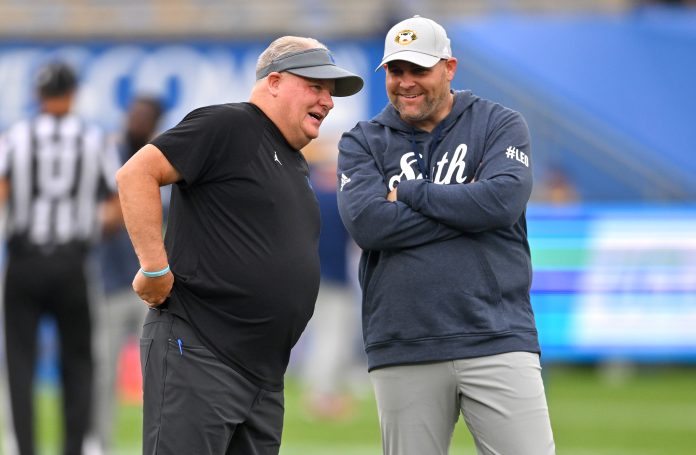Every year, the college football world is rocked by changes from the coaching carousel. But this season, it feels different. With the latest head coach jumping ship to take an assistant role elsewhere, this year’s coaching carousel has left an indelible mark on the sport.
And it may just be getting started.
Why Are So Many College Head Coaches Leaving?
Let’s get right to it: Being a college football head coach is hard. Very hard.
With recruiting, spring practices, and a bowl season that extends way past the sport’s regular season, it’s been widely viewed that college football head coaches spend 365 days a year on the job. But now you have to factor in Early Signing Day, NIL offerings, and the transfer portal, truly making it an everyday job.
MORE: College Football Coaching Carousel
While some have embraced the challenges that come with this year-round profession, others have not. And we’ve had five head coaches leave their posts in favor of a lesser role elsewhere. No program has seemed immune to changes.
Here are the head coaches who have left their roles for assistant jobs elsewhere.
- Chip Kelly, Ohio State offensive coordinator
Former UCLA head coach - Jeff Hafley, Green Bay Packers assistant
Former Boston College head coach - Kane Wommack, Alabama co-defensive coordinator
Former South Alabama head coach - Maurice Linguist, Alabama co-defensive coordinator
Former Buffalo head coach - Shawn Elliott, South Carolina tight ends coach
Former Georgia State head coach
The question still comes to light: Why? Looking at these on a case-by-case basis, each of them likely has its individual reasons, but there’s one underlying aspect for sure.
The rigors of being a college football head coach have become increasingly difficult for coaches on the hot seat or with limited resources.
For Chip Kelly, his tenure at UCLA was a tumultuous one. When the opportunity for him to relinquish power and focus solely on an offense within a friendly and familiar system came available, he leaped to it. Similarly, Jeff Hafley was viewed as on the hot seat at Boston College, and the pressure likely pushed him out.
Then you have the three Group of Five head coaches who jumped to the SEC for assistant roles: Kane Wommack, Maurice Linguist, and Shawn Elliott. That’s where the resources aspect comes into play.
Each program saw an uptick or return in national prominence under the now-former stewardship. Still, each of those programs undoubtedly struggled to offer their athletes the same in terms of NIL offerings as any school from the SEC will be able to.
Considering the transfer portal has become notorious for poaching talent from the Group of Five level to the Power Five programs, it’s become abundantly clear that coaches will be looking for any chance to make the all-too-familiar step up in competition.
Is it really that simple, though? Probably not, but it’s absolutely a factor.
Think about it from a different perspective, say, in the business world. Imagine you’re a start-up CEO who can’t offer salaries matching your industry’s big companies.
As this CEO (head coach), you will lose your talented employees (players) to those bigger companies at the draw of bigger salaries, better benefits, and more perks.
Again, is it that simple? No.
But until we get some other big changes in NCAA legislature around NIL and the transfer portal, the little guy (Group of Five programs) will continue to be a little fish in a big pond.
Miss any action from the top college QB Rankings during the 2023 football season? Want to track all the movement with the college football transfer portal? College Football Network has you covered with that and more!


